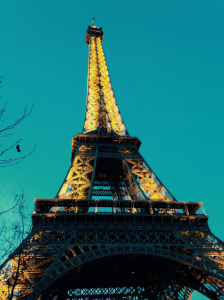The Charlie Hebdo shootings in Paris, organized by a leader of Yemen’s al-Qaida branch, not only caused immense fear, but also sparked a debate about freedom of speech and freedom of the press. Millions of people joined the rally for freedom of expression by using the phrase “Je suis Charlie” during demonstrations, tributes and on social media.
The attack was unacceptable and an assault on the satirical newspaper’s freedom of press, but people must consider other aspects of the debate about freedom of speech and press. While Charlie Hebdo reserves the freedom to print what it wants, that responsibility and decency are necessary accompaniments to freedom of expression.

The recent shooting of Charlie Hebdo staff members was not the only backlash against the newspaper, which has printed cartoons of the Prophet Muhammad. The paper’s Paris office was firebombed in 2011, and it has received many threats in the past.
Muslims throughout the world have expressed upset because their religion forbids the depiction of the Prophet Muhammad. After the release of the latest cover of Charlie Hebdo (after the shootings) that illustrated the Prophet on the front, many Muslims peacefully protested the magazine. Some have even been doing so since 2006. These peaceful activists are not supporting the attacks; they are only protesting because the cartoons are disrespectful to their religion.
Charlie Hebdo cartoonist Renald Luzier, who created the cover image on the latest issue, has been quoted in numerous news sources, defending the cartoon and stating that there should be no exceptions to freedom of expression.
News sources need to demonstrate self-restraint on controversial topics and stay aware of what they are saying and whom it affects. There are exceptions to the First Amendment that make topics like obscenity, child pornography and actual printed threats illegal. There are also social norms for members of the press, like being truthful and factual. When people of the press do not attend to these basic requirements, they lose reputability and professionalism.
The case of Charlie Hebdo is more subjective than other news sources when it comes to content. With any form of satirical or humorous work, there will be backlash and there will be a blurred line of what is considered acceptable. This is one reason why many newspapers in their coverage of the recent attacks have chosen not to include images of Charlie Hebdo’s cartoons because they were viewed as offensive to their audiences.
In a 2012 Le Monde interview, the now-deceased editor of Charlie Hebdo, Stéphane Charbonnier, defended the controversial newspaper and the criticism it has received.
“When activists need a pretext to justify their violence, they always find it,” Charbonnier said.
There is some truth to his words (however, Charbonnier is incorrect in implying that all activists will have violent intentions). When dealing with tough topics in a satirical manner, some will be offended because satire falls into the realm of opinion rather than factual news. But Charlie Hebdo still has the responsibility of retaining a manner of professionalism and credibility, which was damaged when it repeatedly disrespected a religion.
Charlie Hebdo has the right to print images of Muhammad, Jesus or whomever it wants, and the attacks on its staff members were clearly unjust. My point is not about the attacks but the idea of freedom of expression. I believe there should not be unadulterated freedom of press and that one essential responsibility of the press is holding some level of decency and respect to consumers.
You can say “Je suis Charlie, mais avec les responsabilités” (I am Charlie, but with responsibilities).
Claire Noack can be reached at noac8702@stthomas.edu.

